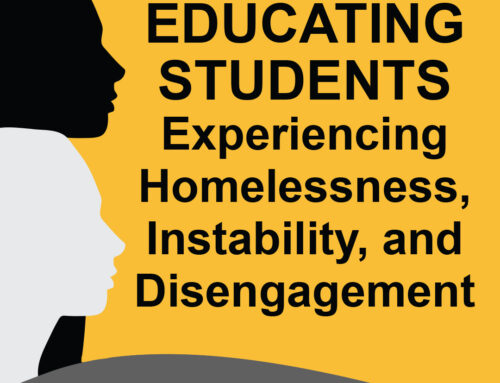A colleague (call him William) shared with me all of the resources he brought to the Individual Education Plan (IEP) meeting for his son at a middle school. Although everyone at the table had his son’s best interests as their focus, William told me he almost unconsciously brought the following resources to the IEP meeting:
- His confident and adult voice
- His love and support of his son
- His knowledge of the Americans with Disabilities Act
- His use of formal language register, respected in middle class systems
- His position as a leader and community professional
- The support of his wife and the connections of his friends and colleagues
- Knowledge of middle class hidden rules, including the subtle nuances
- His ability and time to plan
- His confidence and vision of his son’s future story
- The money to purchase items the school was unable to provide
William told me that these resources made the difference in his child’s education, and he used them to negotiate a better educational environment so his son could have every opportunity to achieve. Even though everyone at the table supported his son, roadblocks were in place that William had to negotiate. He had never really thought about the fact that not everyone had his resources until he saw the Bridges Out of Poverty constructs.
I know that my parents had great love and concern for me. They wanted me to achieve, and I am thankful for all of their support. But they did not have William’s voice, knowledge, position, and confidence in negotiating the educational system. For example, my fourth-grade teacher—but we won’t go there! The rest of my teachers were wonderful.
I have met some amazing people lately who are using programs like Girls’ Circle, Getting Ahead in a Just-Gettin’-By World, and Circles to build resources and directly teach individuals the how of negotiating systems:
- How to advocate for myself and my family
- Knowledge of my legal rights
- How to use formal register and the adult voice, which are respected in the middle class system
- How to challenge the system without appearing defensive
- How to connect with others who provide support
- What to do when the system throws a roadblock in your way
I met a group of impressive women at the Elizabeth Fry Society in Vancouver who directly teach homeless and incarcerated women their rights, how to connect with resources, and how to stand firm and negotiate through personal and systemic roadblocks. E. Fry (as the group calls itself) has been advocating for women in poverty for more than 100 years. They are now embarking on a new initiative, Girl’s Circle, which has demonstrated outcomes in the U.S. This group is also planning to utilize Bridges Out of Poverty because they want service providers to restructure their systems to remove roadblocks. Policy and legislative change is the driving force of E. Fry. Please see Girlscircle.com and ElizabethFry.com for more information.
I met a woman in Findlay, Ohio who told me that after completing the Bridges Out of Poverty workshop, she has been more specific with her clients about the talking points needed to negotiate with local service providers and government offices. In a sort of role play, she now gives her clients certain phrases that reflect knowledge of legal rights and specific legislation. She reports that her clients have been very successful in negotiating these systems since she began this process. I know what you might be thinking, as the thought occurred to me too: Why is it that people in poverty have to go to bat and fight in such a manner for their rights? Is this the human experience, or the poverty experience? Findlay is hoping to address systems and policy change as they begin to investigate becoming a Bridges Community.
I met a woman in Steamboat Springs, Colorado who gave me a newsletter that she had put together. The newsletter presented the voices of mothers in poverty and their stories of negotiating the Medicaid system as they birthed and raised their children. One of the mothers had a baby with a hole in his heart, and the baby would have died but for one doctor who heard this mother and personally referred her to another hospital that did not take Medicaid patients. The doctor broke the rules and somehow found the power to make it happen. The voices in this paper were raw, critical, overbearing, and to be honest, refreshing. There is a time and a place for overt criticism of systems and policy. There are times when to do an “in your face,” especially in the written word, needs to be happen. In fact, those who work within these systems are sometimes the loudest voices for policy change.
Yet, when I read the stories in this newsletter, cut and pasted together with pictures of mothers and babies, I know that this voice is adamant but not always heard.
In the end, our systems need to listen to the voice that is advocating through the roadblocks and remove as many roadblocks as possible. Sometimes our organizations create barriers to changing the effects of poverty on education.
As Jim Collins reflected on the public sector, he noted that often individuals within this sector felt their hands were tied as they waited for legislative and policy change. Collins notes that the private sector advocates for legislative and policy change, but also does great things now. And he found many within the social sector doing the same. This is the balance; we work together to do great things now, but we advocate for those policy and legislative changes that may take time. We want to hear how you negotiate this balance.








